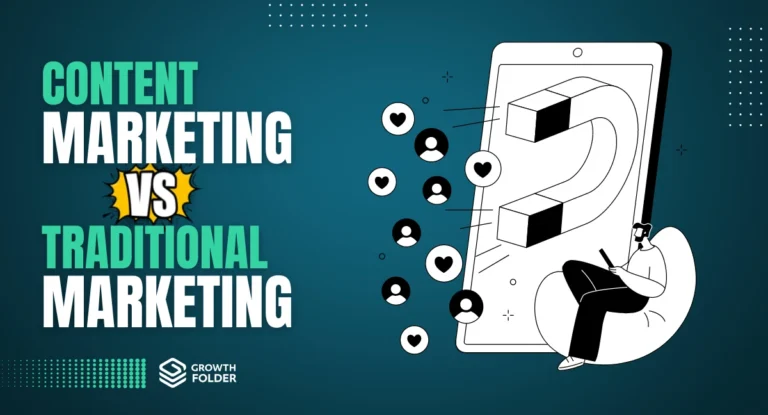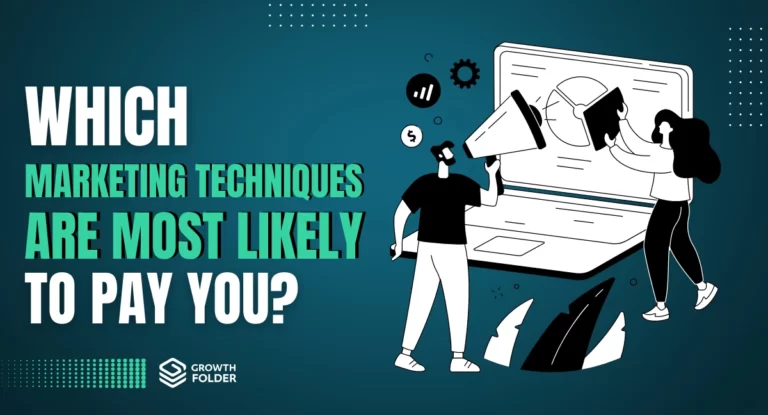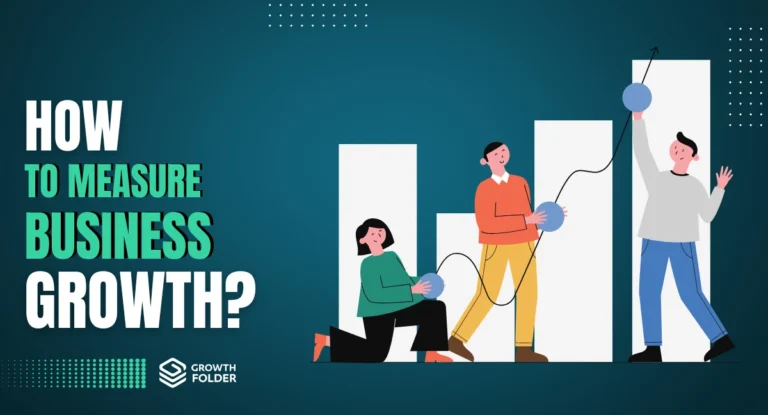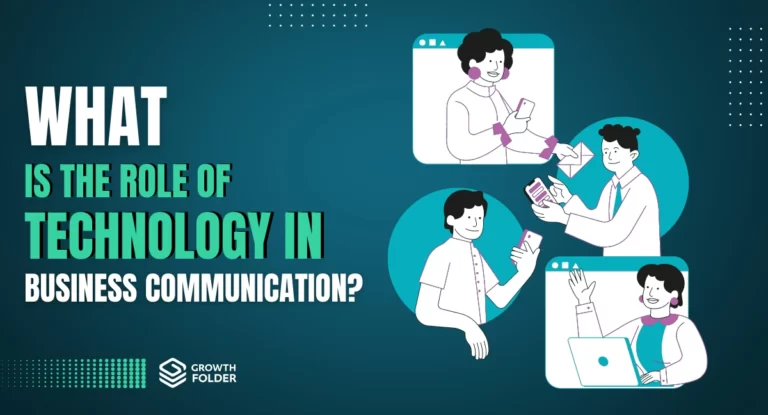
In the vast sea of digital marketing, businesses are like fishermen searching for the perfect catch.
But without a targeted approach, they may be casting their nets blindly, hoping for a stroke of luck.

That’s where the importance of reaching potential customers comes in.
Just as fishermen use the right bait and fishing techniques to attract their desired catch, digital marketers use data analytics, audience targeting, and engaging content to hook potential customers and reel them in.
In this article, we’ll dive deeper into why does digital marketing focus on reaching potential customers and how it can benefit your business.
So, grab your fishing gear, and let’s get started!
What is Digital Marketing?

Digital marketing is simply the use of digital technology, such as the internet and social media, to promote products and services to potential customers.
It’s like advertising, but instead of billboards and TV commercials, businesses use online channels like search engines, social media, email, and websites to reach their target audience.
Digital marketing allows businesses to connect with customers in a more personalized and interactive way, building relationships and increasing brand awareness.
It’s an essential tool for any business looking to stay competitive in today’s digital world.
Why is digital marketing important?

Of course, digital marketing is this..digital marketing is that. I get it!
But how exactly it is going to affect the real business?
Here are some of the crucial ways digital marketing can help your business succeed in the digital landscape:
Increased Visibility
Digital marketing allows businesses to reach a wider audience online, increasing visibility and brand recognition.
By optimizing their website and using search engine optimization techniques, businesses can improve their search engine rankings and attract more potential customers.
Targeted Advertising
Digital marketing allows businesses to target their advertising to specific demographics, interests, and behaviors, ensuring that their message reaches the right people at the right time.
This increases the chances of converting potential customers into actual customers.
Cost-Effective
Digital marketing is often more cost-effective than traditional marketing methods.
For example, businesses can use email marketing to reach a large audience at a relatively low cost, or social media advertising to reach a specific audience without breaking the bank.
Measurable Results
With digital marketing, businesses can track and measure their results in real-time, allowing them to see what’s working and what’s not.
This helps them to adjust their marketing strategy as needed to maximize their return on investment.
Competitive Advantage
In today’s digital world, businesses that don’t have an online presence risk falling behind their competitors.
Digital marketing allows businesses to stay competitive by reaching potential customers online and building relationships with them over time.
It’s an essential tool for any business looking to succeed in today’s marketplace.
Why Does Digital Marketing Focus on Reaching Potential Customers only?

In traditional marketing, businesses often rely on mass media campaigns to reach a broad audience.
However, the problem with this approach is that it is not targeted, and many of the people who see the advertisement may not be interested in the product or service being offered.
This is where digital marketing differs.
Digital marketing enables businesses to target specific demographics, behaviors, and interests, ensuring that their advertisements are seen by the right people; the potentially right people.
This helps to increase the chances of conversion, as the people who see the advertisement are more likely to be interested in the product or service being offered.
As a result, businesses can achieve a higher return on investment (ROI) than they would with traditional marketing.
Targeted Approach
Digital marketing allows businesses to target specific audiences based on demographics, interests, and behaviors.
By focusing on potential customers, businesses can create personalized and engaging content that resonates with their target audience.
Cost-Effective
Reaching potential customers through digital channels is more cost-effective than traditional marketing methods.
By using data analytics and targeting techniques, businesses can optimize their ad spend and maximize their ROI.
Brand Awareness
Reaching potential customers through digital channels can increase brand awareness and visibility.
By creating engaging content and utilizing social media platforms, businesses can reach a wider audience and build a strong brand presence.
Lead Generation
Digital marketing can generate leads by attracting potential customers through targeted ads, SEO, and social media marketing.
By focusing on potential customers, businesses can attract high-quality leads that are more likely to convert into customers.
Competitive Advantage
In today’s digital world, businesses that don’t focus on reaching potential customers through digital marketing will fall behind their competitors.
By leveraging the power of digital marketing, businesses can stay ahead of the game and attract a steady stream of potential customers.
Does digital marketing work for all businesses?
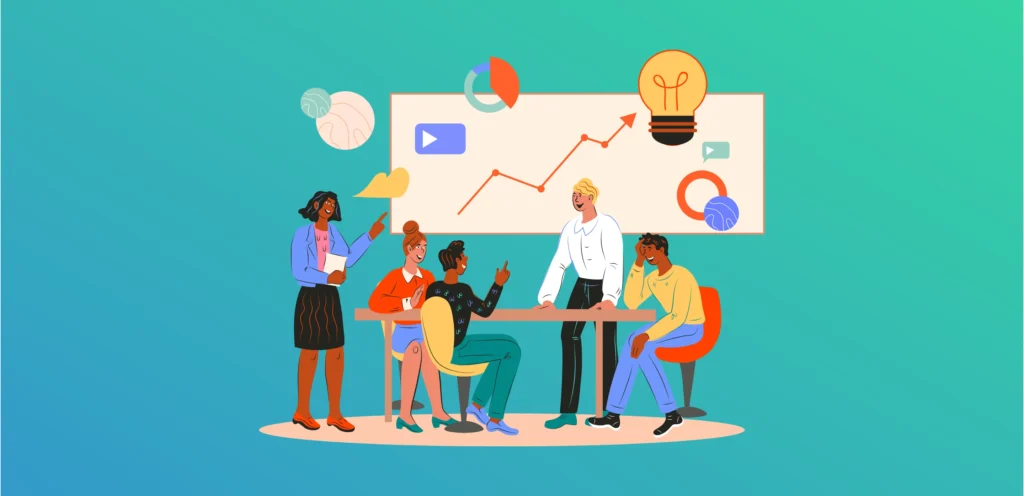
We can’t generalize the fact that digital marketing is good for everyone and every industry at the same time.
It gradually depends on some important parameters as stated below that ultimately decide the actual course of action for the specific business.
Nature of the Business
Digital marketing can be highly effective for businesses that sell products or services that can be easily promoted online.
For example, e-commerce businesses can use digital marketing to promote their products, attract potential customers through search engine optimization (SEO), and retarget them through advertising campaigns.
Similarly, software and digital media companies can use digital marketing to create awareness about their products and services and drive traffic to their websites.
Target Audience
The success of digital marketing depends on how well businesses understand their target audience and how effectively they can communicate with them.
For example, if a business is targeting an older demographic that is less likely to use digital channels, such as social media, digital marketing may not be as effective.
However, if the target audience is younger and more tech-savvy, digital marketing can be highly effective.
For example, a business selling beauty products to a younger audience may find that social media advertising and influencer partnerships are effective ways to reach potential customers.
Competition
The effectiveness of digital marketing can also depend on the competition in your industry.
If your industry is highly competitive online, it may be more challenging to attract potential customers and stand out.
For example, businesses in the travel industry face stiff competition online, making it essential to develop a comprehensive digital marketing strategy that includes SEO, pay-per-click (PPC) advertising, and social media marketing.
Marketing Strategy
The success of digital marketing also depends on how well businesses develop and execute their marketing strategy.
A poorly designed strategy may not be effective in reaching potential customers.
For example, a business that relies solely on SEO to attract traffic to its website may find that it is not generating enough leads or conversions.
In contrast, a business that uses a comprehensive digital marketing strategy that includes SEO, PPC, and social media marketing may be more successful in reaching potential customers and converting them into paying customers.
Budget
Finally, digital marketing can be cost-effective, but it does require a budget.
Businesses should consider their budget when developing a digital marketing strategy and allocate their resources accordingly to maximize their return on investment.
For example, a small business with a limited budget may focus on SEO and social media marketing to attract potential customers, while a larger business with a larger budget may invest in PPC advertising and influencer partnerships to reach a wider audience.
How to reach potential customers in digital marketing

There are several techniques that businesses can use to reach potential customers in digital marketing. Here are some of the most effective ones:
Search Engine Optimization (SEO)
SEO is the process of optimizing a website to rank higher in search engine results pages (SERPs).
By optimizing a website for specific keywords, businesses can attract potential customers who are searching for products or services related to your industry.
This helps to increase the visibility of the website, and as a result, the chances of conversion.
For example, if you sell shoes online, you might optimize your website to appear on the first page of Google when someone searches for “buy shoes online” or “best shoes to buy under $___”.
Pay-Per-Click Advertising (PPC)
PPC advertising involves creating ads that appear at the top of search engine result pages or on other websites, and paying each time someone clicks on your ad.
Businesses only pay when someone clicks on the advertisement, making it a cost-effective way to reach potential customers.
PPC advertising can be highly targeted, allowing businesses to reach specific ages, demographics, behaviors, and interests.
For example, if you sell coffee makers, you might create an ad that appears when someone searches for “coffee makers” on Google. When someone clicks on your ad, they will be taken to your website to make a purchase.
Social Media Marketing
Social media platforms like Facebook, Twitter, and Instagram offer businesses the opportunity to connect with potential customers in a more personal way.
By creating engaging content and targeting specific demographics, businesses can increase their visibility and attract potential customers.
For example, if you sell athletic wear, you might create a Facebook ad targeting people who are interested in fitness and running. This can help you connect with potential customers who are likely to be interested in your products.
Content Marketing
Content marketing involves creating valuable content that attracts potential customers and encourages them to engage with your brand.
When it comes to content marketing, things happen slowly but steadily. It is the best way to gain organic reach for your brand.
For example, if you sell camping gear, you might create a blog post about the best camping spots in the country. This can help you attract potential customers who are interested in camping, and encourage them to check out your products.
Email Marketing
Email marketing involves sending targeted emails to potential customers in order to promote your products or services.
It is a cost-effective way to reach potential customers who have already expressed an interest in the product or service being offered.
By sending personalized emails to subscribers, businesses can nurture leads and encourage them to make a purchase almost every time they pitch it in their email.
It all comes down to one word and that’s TRUST!
For example, if you sell beauty products, you might send a promotional email to your subscribers offering a discount on a new product. This can help you drive sales and encourage repeat purchases from your existing customer base.
Influencer Marketing
Influencer marketing involves partnering with social media influencers to promote your products or services.
For example, if you sell skincare products, you might partner with a beauty influencer on Instagram to promote your products to their followers.
This can help you reach a new audience of potential customers who are interested in your products.
Affiliate Marketing
Affiliate marketing involves partnering with other businesses or individuals to promote your products or services in exchange for a commission on sales.
For example, if you sell kitchen appliances, you might partner with a cooking blog to promote your products to their readers. This can help you reach a new audience of potential customers who are interested in cooking and kitchen appliances.
Mobile Marketing
Mobile marketing involves optimizing your website and ads for mobile devices like smartphones and tablets.
For example, if you sell clothing online, you might optimize your website to be easily navigable on a smartphone screen. This can help you reach potential customers who are browsing on their mobile devices.
Video Marketing
Video marketing involves creating engaging video content to promote your products or services.
For example, if you sell pet products, you might create a video showcasing your products being used by happy pets and their owners. This can help you attract potential customers who are interested in pet products.
Chatbots & Conversation Marketing
Chatbots and conversational marketing involve using automated chatbots to engage with potential customers and answer their questions.
For example, if you sell software, you might use a chatbot on your website to answer common questions about your products. This can help you provide customer service and support to potential customers 24/7.
Retargeting/Remarketing
Retargeting involves targeting potential customers who have previously interacted with your website or social media accounts.
By using cookies, you can track their behavior and show them ads related to the products or services they viewed.
For example, if a customer visited your website and looked at a specific product, but didn’t purchase it, you can show them ads for that product on other websites they visit. This helps to keep your brand top-of-mind and can lead to higher conversion rates.
Local SEO & listings management
Local SEO involves optimizing your website and online listings to appear higher in search results for local queries.
For example, if you run a bakery in New York City, you would want your website to appear at the top of search results when someone searches for “bakery in NYC.”
This can be achieved through various techniques such as optimizing your website for local keywords, building local citations, and managing your Google My Business listing.
podcast Marketing
Podcasts have become increasingly popular in recent years and can be a great way to reach potential customers who are interested in your industry or niche.
By creating your own podcast or being a guest on other podcasts, you can showcase your expertise and build relationships with potential customers.
For example, a marketing agency might create a podcast discussing the latest trends in digital marketing and invite industry experts as guests.
Webinars and online events
Hosting webinars and online events is a great way to engage potential customers and provide value to them.
By offering free educational content, you can build trust and establish yourself as an authority in your industry.
For example, a software company might host a webinar on how to use its product to automate certain business processes.
Challenges in reaching potential customers in digital marketing

While digital marketing offers many benefits, it also comes with its own set of challenges.
Some of the most common challenges businesses face in reaching potential customers include:
High competition
The digital landscape is highly competitive, with many businesses vying for the attention of potential customers.
This means that businesses need to work hard to stand out and differentiate themselves from their competitors.
Low conversion rates
Despite the highly targeted nature of digital marketing, conversion rates can still be low.
This is often due to poor website design, lack of trust, or poor user experience.
Changing algorithms
Search engine algorithms and social media algorithms are constantly changing, making it difficult for businesses to keep up.
This can result in a loss of visibility and a decrease in the number of potential customers.
Conclusion
In conclusion, reaching potential customers is the cornerstone of digital marketing success.
By using targeted and engaging strategies, businesses can attract and convert potential customers, build brand awareness, and ultimately grow their business.
But the beauty of digital marketing is that it’s accessible to everyone, from small startups to global corporations.
With the right tools, techniques, and mindset, anyone can succeed in the digital marketing world.
So, whether you’re a seasoned marketer or just starting out, the opportunities are endless.
Cast your net wide, be patient, and always keep an eye on the prize – a loyal and engaged customer base that will help your business thrive.

